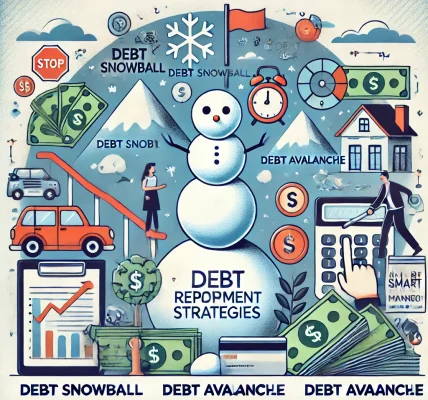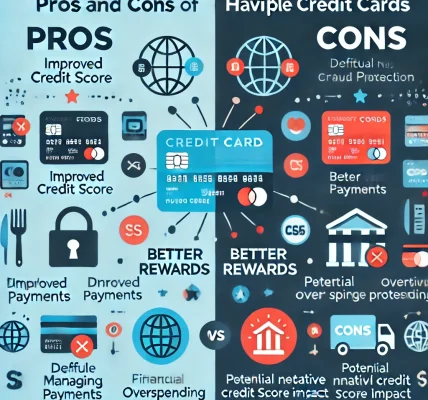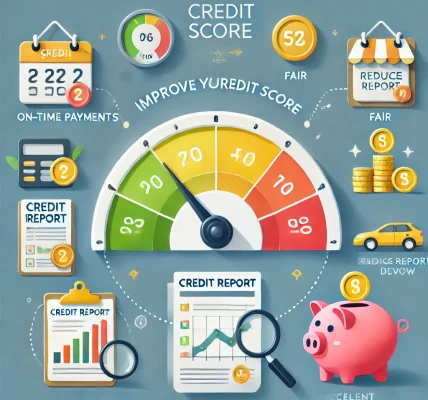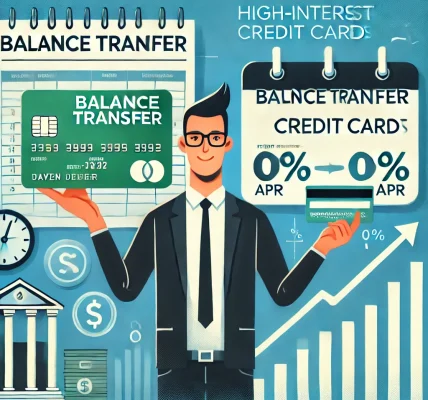Introduction
Debt consolidation is a powerful financial strategy that can simplify your payments, lower interest rates, and help you regain control over your finances. However, many people worry that consolidating debt might negatively impact their credit score. The good news is that when done correctly, debt consolidation can actually improve your credit profile over time.
In this comprehensive guide, we will explore smart, legal, and effective ways to consolidate debt without damaging your credit score. Whether you have credit card debt, personal loans, or other financial obligations, these DIY strategies will help you manage your debt responsibly while maintaining or even improving your credit health.
Understanding Debt Consolidation
Debt consolidation involves combining multiple debts into a single loan or payment plan, making it easier to manage repayments. The primary benefits of consolidation include:
- Simplified Payments: Instead of multiple due dates, you make a single monthly payment.
- Lower Interest Rates: Many consolidation options offer reduced interest rates, saving you money.
- Improved Credit Utilization: Consolidating can help reduce your credit utilization ratio, which is a key factor in credit scores.
- Reduced Stress: A structured repayment plan brings peace of mind.
Does Debt Consolidation Hurt Your Credit Score?
Debt consolidation can temporarily affect your credit score, but the impact is usually minor and short-term. However, if done correctly, it can improve your credit score over time. Here’s how:
- Lowering credit utilization by reducing high credit card balances.
- Avoiding late payments by simplifying repayment schedules.
- Enhancing credit mix, which can positively impact credit scores.
Now, let’s dive into smart, DIY debt consolidation strategies that won’t hurt your credit score.
1. Use a Balance Transfer Credit Card
What It Is:
A balance transfer credit card allows you to move high-interest credit card balances to a new card with a lower or 0% introductory interest rate.
How It Helps:
- You save on interest for a promotional period (usually 12-18 months).
- Lower interest means faster debt repayment.
- It can reduce your credit utilization ratio, improving your score.
Key Tips:
- Choose a card with 0% APR for at least 12 months.
- Pay off the balance before the promotional period ends to avoid high interest.
- Avoid adding new purchases on the card to stay focused on repayment.
2. Apply for a Debt Consolidation Loan
What It Is:
A personal loan used to pay off multiple debts, leaving you with a single, manageable payment.
How It Helps:
- Fixed interest rates prevent your debt from growing unexpectedly.
- Can improve your credit mix, which is beneficial for credit scores.
- Helps with structured, predictable repayment schedules.
Key Tips:
- Compare lenders to get the best interest rates.
- Ensure your new loan has a lower interest rate than your existing debts.
- Avoid closing old credit accounts, as this can affect your credit history length.
3. Leverage a Home Equity Loan or HELOC
What It Is:
If you own a home, a Home Equity Loan (HEL) or Home Equity Line of Credit (HELOC) can be used to consolidate debt.
How It Helps:
- Offers lower interest rates compared to credit cards and personal loans.
- Longer repayment terms make monthly payments more manageable.
Key Tips:
- Be cautious: Your home is collateral—if you miss payments, you risk foreclosure.
- Ensure the new payment is affordable and within your budget.
4. Enroll in a Debt Management Plan (DMP)
What It Is:
A Debt Management Plan (DMP) is a structured repayment program offered by nonprofit credit counseling agencies.
How It Helps:
- Credit counselors negotiate lower interest rates with creditors.
- Helps you pay off debt in 3-5 years with a single payment.
- Does not directly impact credit scores, but closing accounts may.
Key Tips:
- Work with a reputable nonprofit credit counseling agency.
- Ensure you understand all fees before enrolling.
- Avoid programs that promise debt forgiveness (many are scams).
5. DIY Debt Consolidation Without a Loan
If you don’t qualify for a loan, you can self-manage your debt consolidation using these strategies:
The Snowball Method:
- Pay off smallest debts first, then roll payments into larger debts.
- Provides quick wins and motivation.
The Avalanche Method:
- Focus on paying off high-interest debt first, saving money over time.
- Reduces total interest paid more efficiently.
Key Tips:
- Always make minimum payments on all debts to protect your credit score.
- Avoid missing payments, as payment history is the biggest factor in credit scores.
Avoid These Common Mistakes
While consolidating debt, avoid these pitfalls to protect your credit score and financial health:
❌ Closing Old Credit Accounts – Keep old accounts open to maintain a strong credit history.
❌ Taking on New Debt – Avoid accumulating more debt while paying off existing balances.
❌ Not Comparing Loan Offers – Research lenders to get the lowest interest rates.
❌ Falling for Scams – Avoid companies that ask for upfront fees or guarantee results.
Conclusion
Debt consolidation can be a powerful tool for financial freedom, but it must be done strategically to avoid harming your credit score. Whether you choose a balance transfer card, a personal loan, a home equity loan, or a DIY method like the snowball or avalanche approach, the key is responsible financial management.
Final Tips for Success:
- Pay on time every month.
- Create a budget to prevent future debt problems.
- Monitor your credit score regularly to track progress.
By using these smart, legal, and effective strategies, you can consolidate your debt without harming your credit score—and take a step toward long-term financial stability.




